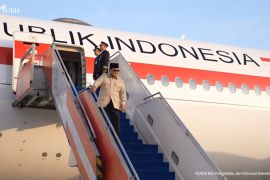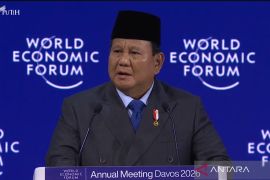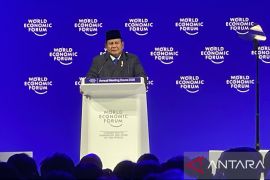Switching from cash to electronic payments has a substantial socio-economic benefit."Jakarta (ANTARA News) - The World Bank Institute and the World Economic Forum (WEF) held a study to review the transactions made by micro, small, and medium enterprises (SMEs) globally over the years.
"Despite the presence of several institutions and driving forces to achieve access and financial inclusion, the most important aspect is the potential impact of extending the use of digital financial services through more acceptable electronic payments," Gloria Grandolini, senior director of finance and markets at the World Bank Group, stated in a release on Thursday.
According to the study, the estimated value of transactions globally made by SME retailers annually reached some US$19 billion through cash and checks, as well as $15 billion per year through electronic payments.
The study also proposed a five-point strategy for companies and governments in a bid to switch from the US$19 trillion payments in the form of cash and checks to electronic payments.
Electronic payments are largely viewed to be more secure and reduce the risk of corruption. Moreover, Such mode of payment is able to boost economic activities.
"Switching from cash to electronic payments has a substantial socio-economic benefit," remarked WEF Head of Banking and Capital Markets Matthew Blake.
Besides this, electronic payments can create business opportunities and help forge better public-private partnerships to serve SMEs.
Earlier, Indonesian former vice president Boediono said that SMEs are the best instruments for achieving justice and economic equality if they are fully supported by various parties, including ministries and financial institutions.
"The best instruments to achieve economic equality are actually SMEs. There are indirect ways, such as taxes and fees. This is possible if we push progress directly to achieve equalization without having to make indirect efforts," Boediono affirmed in Jakarta, Wednesday (June 29).
For the success of SMEs, coherent thinking is required and should become a common task that must be shouldered by all parties and not just the Ministry of Cooperatives and SMEs, Boediono emphasized.
Boediono explained that there were five strategies for goals defined in the ASEAN Action Plan for SME Development.
The first strategy aims to promote productivity and innovation through the use of technology.
The second strategy focuses on financing access, which is still viewed as offering an opportunity and room for all parties, especially banks to support SME lending.
The third strategy prioritizes market access, where SMEs must not only operate in local markets but also at the international level, Boediono elaborated.
The fourth strategy outlines the creation of a conducive business climate. The fifth strategy stresses on honing entrepreneurial abilities.
(Reporting by Muhammad Razi Rahman/Uu.A050/INE/KR-BSR/H-YH)
Editor: Priyambodo RH
Copyright © ANTARA 2016











